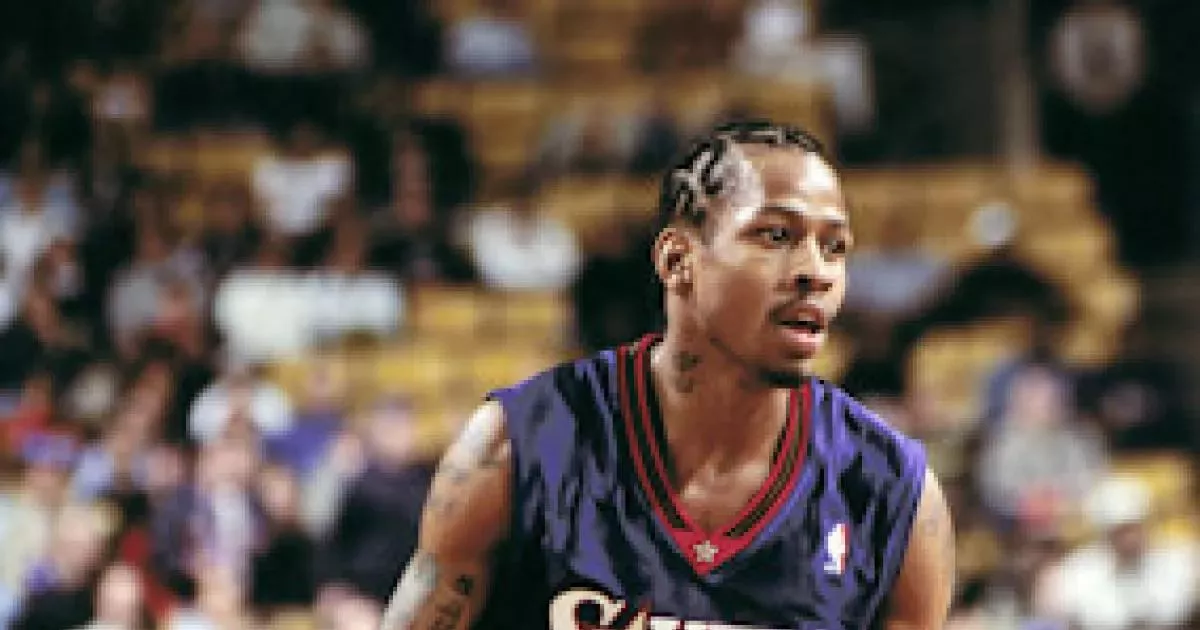A closer look at the defining struggles that shaped Allen Iverson's life and career.
Allen Iverson, nicknamed "the Answer," is a retired American professional basketball player who played 14 seasons in the NBA. Predominantly a shooting guard and point guard, he was named NBA Rookie of the Year in 1997 and won the MVP award in 2001. An 11-time NBA All-Star, Iverson also secured two All-Star Game MVP awards. He was inducted into the Naismith Memorial Basketball Hall of Fame in 2016 and named to the NBA 75th Anniversary Team in 2021. Iverson is celebrated as one of basketball's greatest scorers, ball handlers and most influential athletes.
February 14, 1993: Involvement in Bowling Alley Altercation
On February 14, 1993, Allen Iverson and his friends were involved in an altercation at a bowling alley in Hampton, Virginia, leading to his arrest and conviction on a felony charge.
1995: Conviction Overturned
In 1995, Allen Iverson's conviction was overturned by the Virginia Court of Appeals for insufficient evidence, after spending four months in a correctional facility.
August 1997: Arrested for concealed weapon and marijuana possession
In August 1997, Iverson was arrested for carrying a concealed weapon and possessing marijuana after being stopped for speeding. He pleaded no contest and received a community service sentence.
2002: Practice Rant
In 2002, Allen Iverson responded to criticism for missing team practices with his infamous "practice" rant.
2002: Domestic Dispute and Gun Allegations
In 2002, Iverson was accused of throwing his wife out of their home after a domestic dispute and later threatening two men with a gun. However, all charges were dropped due to lack of evidence and contradictory witness statements.
2003: Randy Ayers became the next coach of the 76ers
In 2003, Randy Ayers became the next coach of the 76ers. He failed to develop chemistry with his players, and was fired following a 21–31 start to the season.
February 24, 2004: Incident at Bally's Atlantic City Casino
On February 24, 2004, Iverson urinated in a trash can at Bally's Atlantic City casino and was subsequently banned from returning by the casino management.
December 9, 2005: Casino Argument at Trump Taj Mahal
On December 9, 2005, after winning a hand at a poker table at the Trump Taj Mahal in Atlantic City, Iverson was overpaid $10,000. He refused to return the money when the dealer requested it back, leading to a heated argument.
2005: Bodyguard Assault Allegation
In 2005, Iverson's bodyguard, Jason Kane, was accused of assaulting a man at a Washington, D.C. nightclub. The man, Marlin Godfrey, sued Iverson for the injuries caused by his bodyguard, even though Iverson himself did not physically assault Godfrey.
2006: Iverson Reportedly Demanded Trade
After a disappointing start to the 2006–07 NBA season, Allen Iverson reportedly demanded a trade from the Sixers, leading to him being told he would not play in any more games for the team. The trade rumors were confirmed by Sixers Chairman Ed Snider, who stated, "We're going to trade him."
2006: Iverson Averaged Career-High in Points
During the 2005–2006 season, Allen Iverson averaged a career-high 33.0 points per game, but the Sixers missed the playoffs for the second time in three years.
2007: Jury Awarded $260,000 to Marlin Godfrey
In 2007, a jury awarded Marlin Godfrey $260,000 in damages as a result of the 2005 assault by Iverson's bodyguard.
March 2009: Court of Appeals Upheld Verdict
In March 2009, the United States Court of Appeals for the District of Columbia Circuit upheld the verdict from the 2007 case, where Marlin Godfrey was awarded $260,000 for injuries caused by Iverson's bodyguard in 2005.
November 7, 2009: Iverson Left Grizzlies
On November 7, 2009, Allen Iverson left the Memphis Grizzlies for "personal reasons" after expressing his displeasure at being a bench player.
February 22, 2010: Iverson Left the 76ers Indefinitely
On February 22, 2010, Allen Iverson left the 76ers indefinitely to attend to his daughter Messiah's health issues, which he later revealed was Kawasaki Disease.
March 2, 2010: Tawanna Iverson Filed for Divorce
On March 2, 2010, Tawanna Iverson filed for divorce, seeking custody of their children, child support, and alimony payments.
August 2011: $2.5 Million Lawsuit Dismissed
In August 2011, a federal judge dismissed a $2.5 million lawsuit against Iverson, related to a 2009 bar fight in Detroit, due to lack of evidence implicating Iverson or his bodyguard in the alleged assault.
2013: Kidnapping Accusation
In 2013, Iverson was accused of kidnapping his children and refusing to return them to their mother. He denied the accusation, and his ex-wife later recanted.
Mentioned in this timeline

Basketball is a team sport played on a rectangular court...

Post Malone Austin Richard Post is a highly successful American...
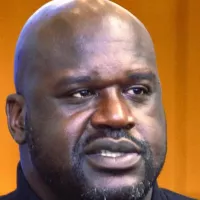
Shaquille O'Neal or Shaq is a celebrated American former professional...
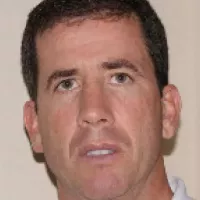
Timothy Francis Donaghy is a disgraced former professional basketball referee...
CBS Broadcasting Inc CBS is a prominent American commercial broadcast...
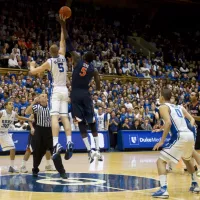
College basketball in the U S is governed by bodies...
Trending

1 hour ago Google Maps to fully function in South Korea after data agreement.
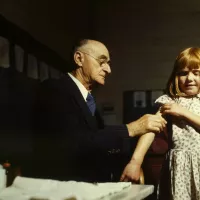
2 hours ago CDC Panel to Discuss COVID-19 Vaccine Injuries Following RFK Jr.'s Meeting
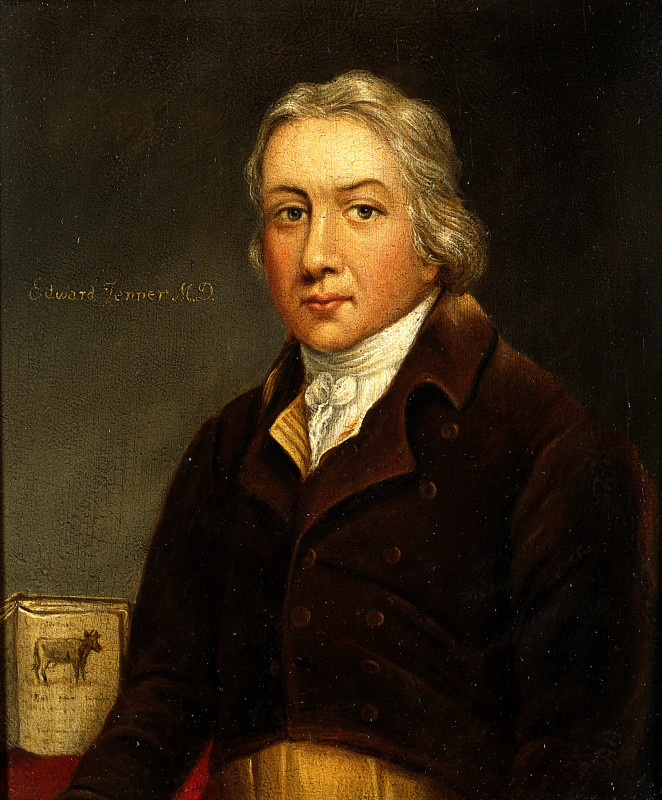
1 hour ago CDC Panel to Discuss COVID Vaccine Injuries Following RFK Jr.'s Meeting

2 hours ago Casey Means' Surgeon General Nomination Faces Scrutiny Over Mainstream Medicine Criticism and Birth Control Views.
3 hours ago Punch, the lonely baby monkey, goes viral and wins hearts worldwide.

4 hours ago Jon Hamm Discovers Viral Dancing Meme; Reacts to Meme-Worthy Status at 54.
Popular

Jesse Jackson is an American civil rights activist politician and...

Barack Obama the th U S President - was the...

Susan Rice is an American diplomat and public official prominent...

XXXTentacion born Jahseh Dwayne Ricardo Onfroy was a controversial yet...

Michael Joseph Jackson the King of Pop was a highly...

Kashyap Pramod Patel is an American lawyer who became the...
